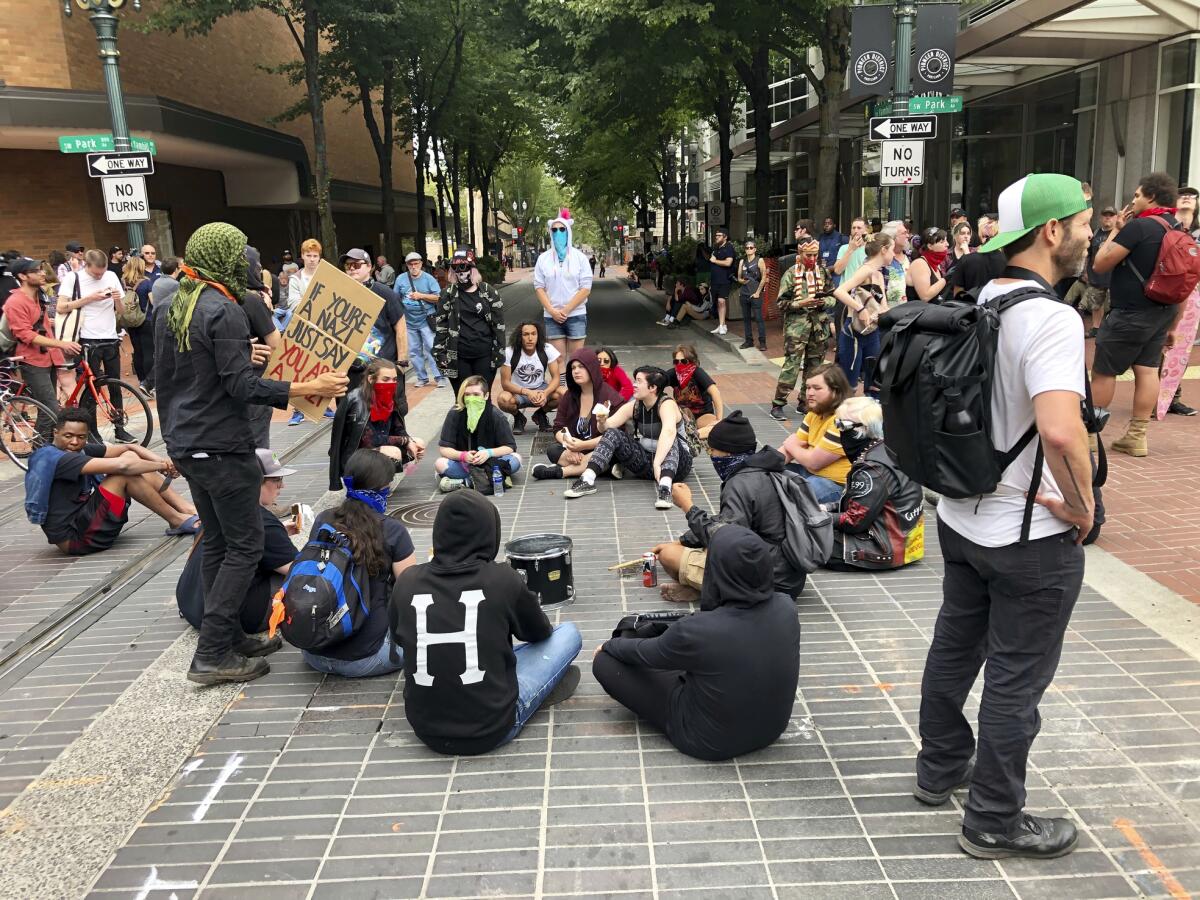Op-Ed: Why Trumpâs tweet about labeling âantifaâ a terrorist group is so dangerous

President Trump tweeted on Sunday that his administration will designate âantifa,â a term used by some self-described anti-fascists, a âterrorist organization.â
We still do not have a clear idea of what groups are involved in these protests. As a long-standing critic of antifa, which has been a plague of college campuses, I have no sympathy for this militant, anti-free-speech movement. But President Trumpâs declaration is legally dubious and constitutionally dangerous.
A president does not have power to declare an entity to be a terrorist organization. Such a designation under federal law is confined to âforeign terroristâ organizations â and for that reason, these designations are made through the U.S. State Department.
While many have dismissed the possibility of a terrorist designation for antifa because it is a domestic movement, the administration could make a slim, if highly challengeable, claim that antifa has international reach with supporters in other countries. It would be a stretch, but people should not assume that such a designation is impossible.
The administration could also move to bar travel and entry of those associated with the movement, including foreign associates. Most worrisome, such a designation can allow a broader crackdown, and even criminal charges, for those deemed to offer âmaterial supportâ to the movement.
That, of course, raises serious constitutional concerns. This terrorist designation would raise chilling implications for free speech in the United States.
First, antifa is not a traditional organization. Indeed, it is designed not to have any specific leadership or structure that could be targeted by the government. It is an informal and amorphous collection of individuals and groups who hold militant and anarchist views. The designation of such an ambiguously defined group would allow the government to trigger criminal investigative and prosecution powers over a vaguely defined range of political activists.
Second, many people in the antifa movement engage in traditional acts of civil disobedience, from blocking roads to chaining themselves to doors. Many organizations have had members who have been investigated and prosecuted for criminal activity without being declared terrorist entities, ranging from hate groups like the Ku Klux Klan to more traditional political groups like Greenpeace.
If the government can designate a terrorist organization based on the conduct of some members, the criminalization of political speech could be virtually unlimited.
Finally, what weâve seen across the country is spontaneous looting and rioting caused by pent-up anger and, in some cases, opportunistic crime. To suggest that antifa members are driving this damage overstates their importance and understates the problem.
We do not need to use the designation of terrorist organizations to curb acts of violence in this country. Indeed, the Justice Department is currently prosecuting people for throwing Molotov cocktails in New York, including filing charges against two young lawyers. When antifa members or others engage in criminal acts, we have ample criminal laws to use against them.
Jonathan Turley is the Shapiro Professor of Public Interest Law at George Washington University and a CBS and BBC legal analyst.
More to Read
A cure for the common opinion
Get thought-provoking perspectives with our weekly newsletter.
You may occasionally receive promotional content from the Los Angeles Times.










